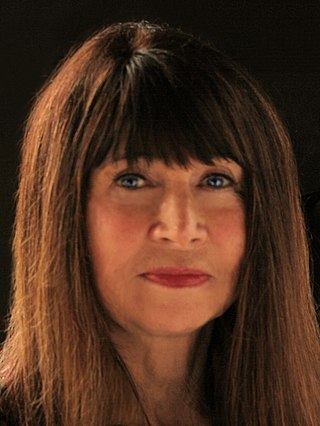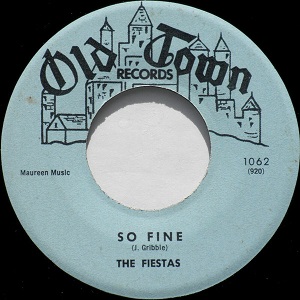Related Research Articles
"All My Trials" is a folk song which became popular during the social protest movements of the late 1950s and 1960s. Alternative titles it has been recorded under include "Bahamian Lullaby" and "All My Sorrows." The origins of the song are unclear, as it appears to not have been documented in any musicological or historical records until after the first commercial recording was released on Bob Gibson's 1956 debut album Offbeat Folksongs.

Dick and Dee Dee are an American singer-songwriter duo who reached popularity in the early to mid-1960s. The group was founded by California classmates Richard Gosting and Mary Sperling. They eventually changed their names to Dick St. John and Dee Dee Sperling. They had their first hit in 1961 when "The Mountain's High" reached No. 2 on the Billboard 100. They toured with the Beach Boys and opened for the Rolling Stones during the Stones's 1964 tour of California. Regulars on the show Shindig!, the duo had multiple hit songs before St. John and Sperling disbanded in 1969. In the 1980s, St. John toured with his wife, Sandy. Dick St. John died on December 27, 2003, after a fall at his home. Dee Dee Phelps began performing with actor/singer Michael Dunn as Dick and Dee Dee in 2008, appearing in large doo wop and rock and roll shows throughout the United States.
John Dee Loudermilk Jr. was an American singer and songwriter. Although he had his own recording career during the 1950s and 1960s, he was primarily known as a songwriter.

"Days of Wine and Roses" is a popular song, from the 1962 film of the same name.

"Hold Me, Thrill Me, Kiss Me" is a song written by Harry Noble and originally performed by Karen Chandler in 1952. It has been re-recorded several times since then, the most notable covers being by Mel Carter in 1965 and Gloria Estefan in 1994.

Dee Dee Phelps is a singer-songwriter and author from Santa Monica, California, best known as half the popular 1960s musical duo Dick and Dee Dee. She became a professional writer in 2007, publishing her award-winning memoir Vinyl Highway. In 2008, Dee Dee joined with singer/actor Michael Dunn to revive the Dick and Dee Dee act live. More recently, in 2013, Dee Dee is now teamed with Deke Detanna, lead singer of Deke and the Blazers. The duo performs all over the country, singing classic Dick and Dee Dee hits.
Glenda Collins is an English pop music singer, primarily active in the 1960s. She recorded a string of singles which were produced by Joe Meek, and was the only female singer he regularly worked with.
The Pleazers were an Australian-formed rhythm and blues musical group which were popular in New Zealand. They began in Brisbane as the G-Men in 1964. They released a sole studio album, Definitely Pleazers, in 1966, before disbanding in the following year.

"Tobacco Road" is a blues song written and first recorded by John D. Loudermilk in December 1959 and released in 1960. This song became a hit for The Nashville Teens in 1964 and has since become a standard across several musical genres.

"Bird Dog" is a song written by Boudleaux Bryant and recorded by the Everly Brothers. It was released in 1958 and was a no. 1 hit on the Billboard Country Chart for six weeks. The song also hit no. 2 on the U.S. Billboard Hot 100, as well as peaking at no. 2 for three weeks on the R&B charts.

"Then You Can Tell Me Goodbye" is a song written by John D. Loudermilk. It was first released in 1962 by Don Cherry, as a country song and again as a doo-wop in 1967 by the group The Casinos on its album of the same name, and was a number 6 pop hit that year. The song has since been covered by Eddy Arnold, whose version was a number 1 country hit in 1968, and by Neal McCoy, whose version became a Top 5 country hit in 1996.

Brenda Lee is the second studio album by American singer Brenda Lee. The album was released August 1, 1960 on Decca Records and was produced by Owen Bradley. The album's second single "Sweet Nothin's" became Lee's first major hit single on the Billboard Hot 100, peaking within the Top 10. This was followed by the third single "I'm Sorry" released the following year that became her first single to top the Billboard Hot 100.
"Everything's Alright" is a song written by John D. Loudermilk and performed by The Newbeats. It reached #6 in Canada, #16 on the Billboard Hot 100, and #53 in Australia in 1964. The song was also released in the United Kingdom as a single, but it did not chart. The song was featured on their 1964 album, Bread & Butter.
"Run, Baby Run " is a song written by Joe Melson and Don Gant and performed by The Newbeats. It reached #4 in Canada, #12 on the Billboard Hot 100, and #66 in Australia in 1965. The song was also released in the United Kingdom as a single, but it did not chart on its original release. The group re-released the song as the B-side to their 1971 single, "Am I Not My Brother's Keeper", and in that year, "Run, Baby Run " reached #10 in the U.K., following extensive playing in Northern Soul clubs in England.
"Break Away (from That Boy)" is a song written by Louis "Dean" Mathis and Marcus F. Mathis and performed by The Newbeats. It reached #7 in Australia, #15 in Canada, and #40 on the Billboard Hot 100 in 1965. The song was also released in the United Kingdom as a single, but it did not chart. The song was featured on their 1965 album, Big Beat Sounds by The Newbeats.

Bread & Butter is the debut album by The Newbeats and was released in 1964. It reached #56 on the Billboard 200.
"Young and in Love" is a song written by Dick St. John and performed by Dick and Dee Dee. It reached #6 on the adult contemporary chart and #17 on the Billboard chart in 1963. The song was also released in the United Kingdom as a single, but it did not chart. The song was featured on their 1963 album, Young and in Love.
"Turn Around" is a song written by Malvina Reynolds, Alan Greene, and Harry Belafonte and made popular by Dick and Dee Dee. The song was produced by Don Ralke and The Wilder Brothers.

"So Fine" is a song written by Johnny Otis and performed by The Fiestas. It reached No. 3 on the U.S. R&B chart and No. 11 on the U.S. pop chart in 1959.
"Thou shalt not steal" is one of the Ten Commandments of the Jewish Torah / or Christian first five Old Testament of the Bible
References
- ↑ Dick and Dee Dee, "Thou Shalt Not Steal" US single release Retrieved May 2, 2015
- ↑ Dick and Dee Dee, "Thou Shalt Not Steal" chart position Retrieved May 2, 2015
- ↑ "RPM Top 40&5 - January 4, 1965" (PDF).
- ↑ Dick and Dee Dee, "Thou Shalt Not Steal" UK single release Retrieved May 2, 2015
- ↑ Dick and Dee Dee, Thou Shalt Not Steal Retrieved May 2, 2015
- ↑ John D. Loudermilk, "Thou Shalt Not Steal" chart position Retrieved May 2, 2015
- ↑ Glenda Collins, "Thou Shalt Not Steal" single release Retrieved May 2, 2015
- ↑ The Pleazers, "Thou Shalt Not Steal" single release Retrieved May 2, 2015
- ↑ The Newbeats, "Thou Shalt Not Steal" chart position Retrieved May 2, 2015